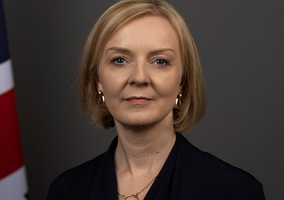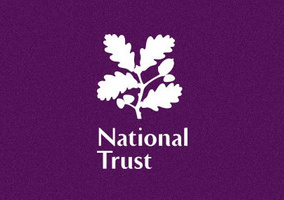In these shambolic times it seems only right that those working with the communities most impacted by the cost-of-living crisis, and Westminster instability, should be able to stand up and speak. Though charitable organisations are often reminded not to be party-political, of course anti-poverty charities want to see benefits uprated in line with inflation, while environmental charities want our rivers clear of sewage – it would be wrong to suggest they stay quiet on these issues.
Nonetheless, the charity sector has been the recent subject of numerous cautions around campaigning. As Marina Hyde noted in a recent column, a commentator on GB News recently criticised the sector as having been “wholly co-opted by bad actors trying to destroy British civil society” while a Conservative MP at the party conference said “charities dabble in politics too much”.
The Charity Commission has drawn some concerns in recent months, with some describing a shift in the regulator’s tone from “enabling people to campaign well and legally to intimidating people into not campaigning at all”.
Sector lawyers expressed unease over the phrasing of the Commission’s recently published five-minute guide, which said that charities must “consider the impact of [their] political activity on the charity’s assets including its reputation, especially when it might attract significant public interest or criticism”.
Commission chair Orlando Fraser also said last month that trustees should consider whether undertaking political activity was “the prudent thing to do” and urged them to campaign “with tolerance and kindness”.
Speaking recently, Duncan Shrubsole, director of policy, communications and research at the Lloyds Bank Foundation encouraged charities to “kick up the biggest stink possible” over the cost-of-living crisis, while in a recent interview associate director of Joseph Rowntree Foundation, Helen Barnard, explained it’s part of a charity’s mission to bring about social change.
JCWI: ‘Campaigning is a vital part of our democracy’
Ultimately, charities have a long history of speaking up on social justice issues, and successful campaigning. In more recent history, some charities have also explicitly said they are making shifts in the way they campaign; to be more outspoken on issues pertinent to their objects.
Zehrah Hasan, advocacy director at the Joint Council for the Welfare of Immigrants (JCWI) said the charity has been fighting for justice and equality for over 50 years and “sadly there has been more reason than ever for our campaigning in recent years, given this government's doggedly hostile approach to migrants and refugees.”
Hasan said the charity is proud of being “a bold and principled voice” when it comes to defending the rights of people who move, and “we remain staunchly committed to critiquing decisions and statements which harm migrant communities, regardless of who’s making them”.
She said: “Through our campaigning, we aim to amplify the voices of our clients – all of whom have lived experience of this government’s immigration system – and this frequently means holding those in power to account. We believe this type of campaigning is a vital part of our democracy, and the Charity Commission should recognise this.
“As this government plunges us further into a cost-of-living emergency, ignores the growing climate crisis, and continues to strip away the rights and dignity of people across the country, it’s vital that charities can speak out against the decisions which are harming our communities. From U-turns on free school meals to the pandemic eviction ban, we know that loudly demanding change is key to achieving a more fair and just society.”
Scope: ‘We need to speak out’
During the Conservative conference, disability equality charity Scope was vocal about the scale of emergency facing disabled people this winter.
James Taylor, director of strategy at Scope, said the charity knows from speaking to hundreds of disabled people and disabled families, just how much of an impact the cost-of-living crisis is having on people’s finances and on their health.
Taylor said: “We work with and support thousands of disabled people each year through advice and programmes to tackle some of these issues.
“But tackling the increasing injustice, and ultimately the root causes of poverty amongst our disabled citizens cannot be done through charity programmes and support services alone.
“We need to speak out, and call out, where we believe the government and others are failing in their role to support this country’s 14.6 million disabled people live independently and free from the risk of poverty.”
“Scope’s purpose and mission is to campaign for disability equality, and Taylor said: “When we have thousands of disabled people telling us they feel abandoned, we have a responsibility to speak out publicly with those who don’t feel they have a voice and reflect their frustration.
“We’ll make no apology for being bold or for calling out injustice when we see it. It’s what we’re here to do, it’s what we were created to do, and it’s what we’ll continue to do.”
Over the last few days, we've been at Conservative Party Conference. We've been getting the message across to Government about the scale of emergency facing disabled people this winter.
— Scope (@scope) October 5, 2022
Hopefully, they’ll all have seen our billboard on the way in. They can’t miss it. #CPC22 pic.twitter.com/OSPeF8YxIV
Lobbying Act ‘imposes significant administrative burden’
Environmental charities have been particularly cogent in their campaigning strategies, with the National Trust and RSPB being vocal on their concerns around certain policies.
In terms of the Commission’s general guidance, the National Trust said it welcomed confirmation that engaging with government is entirely within the remit of charities where it “supports their purpose and is in their best interests”. The charity recently published a blog by Hilary McGrady, director-general, which said recent government proposals could pose a threat to its charitable aims to protect green space, wildlife and heritage.
“I want to be clear that this isn’t about politics, it’s about standing up for the things we were set up to care about. We would ask any government that has said they will do away with critical protections to outline their plans and reassure us,” she wrote.
RSPB has also made clear that where damage is done, it will work to hold the government account if required.
🚨😡 As of last week, the UK Government has launched an attack on nature. We are angry and we are mobilising against these proposed plans. Please read this thread 1/7 👇 pic.twitter.com/AqgtLTVduE
— RSPB (@Natures_Voice) September 26, 2022
Its campaigning policy says “our campaigning and advocacy work delivers real practical benefits for nature and its conservation” adding it is of course vital “we conduct our campaigning work in a legal and transparent way which takes into account our status as a charity and reflects our charitable objects”.
It reads: “We are scrupulous about never taking a party-political stance and take particular care during election periods never to imply support for particular parties or candidates. We have taken the decision to avoid, if possible, activity that could be regarded as “regulated activity” under the 2014 Transparency of Lobbying Act, provided this is not to the detriment of our charitable objectives.
“The Act nonetheless imposes significant administrative burden, partly because the terms of the Act are so broad that even minor changes in a campaign, including those outside our control (such as the potentially shifting views held by politicians), could result in it becoming regarded as regulated.”
New opportunity
Surely some would like to see charities remain silent on malign policy and the turmoil in Britain's leadership, but it would be irresponsible not to speak up on issues that would see a charity’s community ripped apart or work quashed.
With Rishi Sunak the third prime minister this year, and the chancellor’s promise to strip public budgets, it seems only right that the sector speaks up to a government which some may feel has no mandate to make these decisions in the first place.
Sunak’s government has the opportunity to utilise the knowledge in the charity sector to direct policy. If charity voices are not acknowledged, or dismissed, they will only get louder as the cost-of-living crisis enters the winter months.
Related Articles












